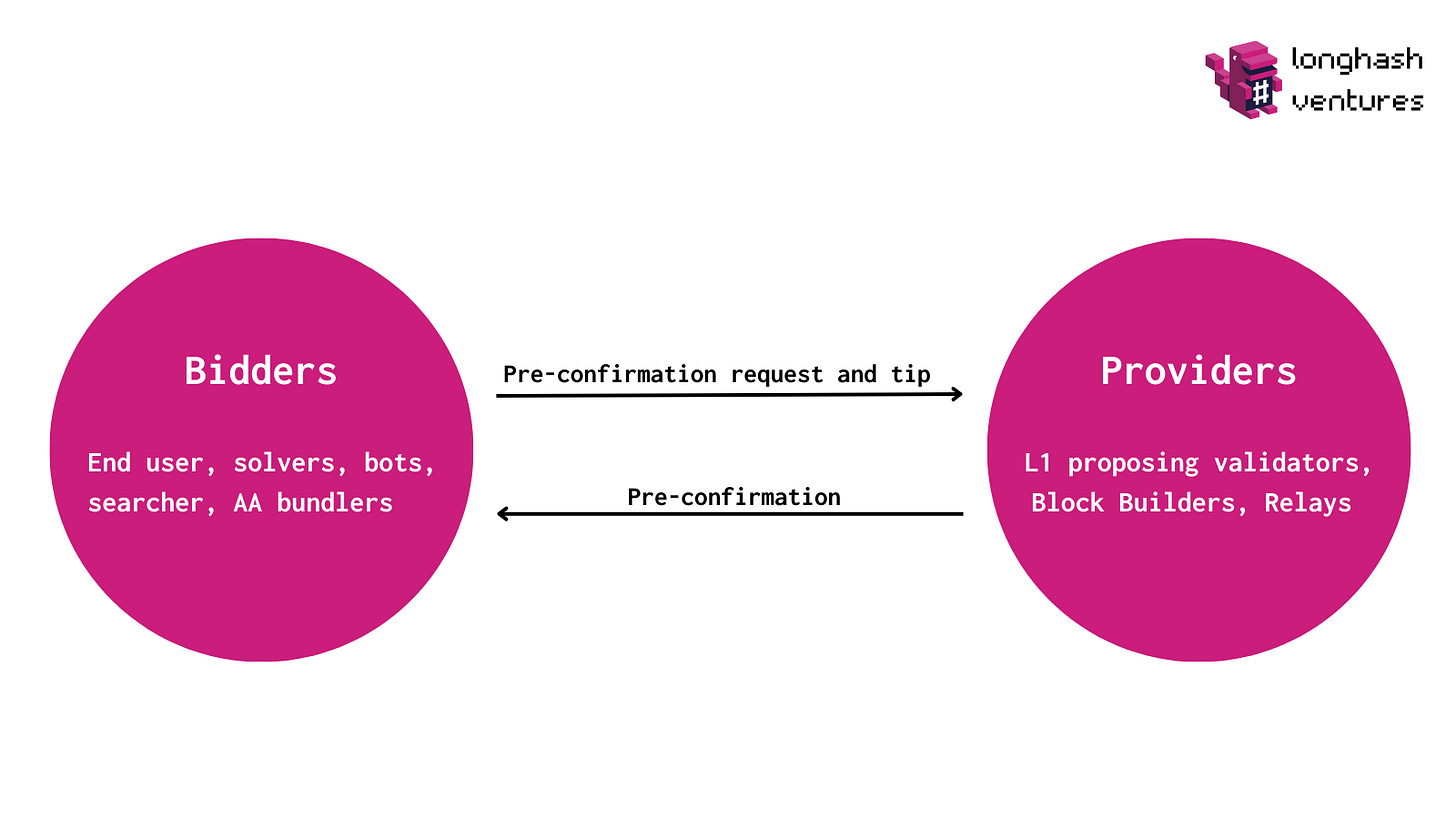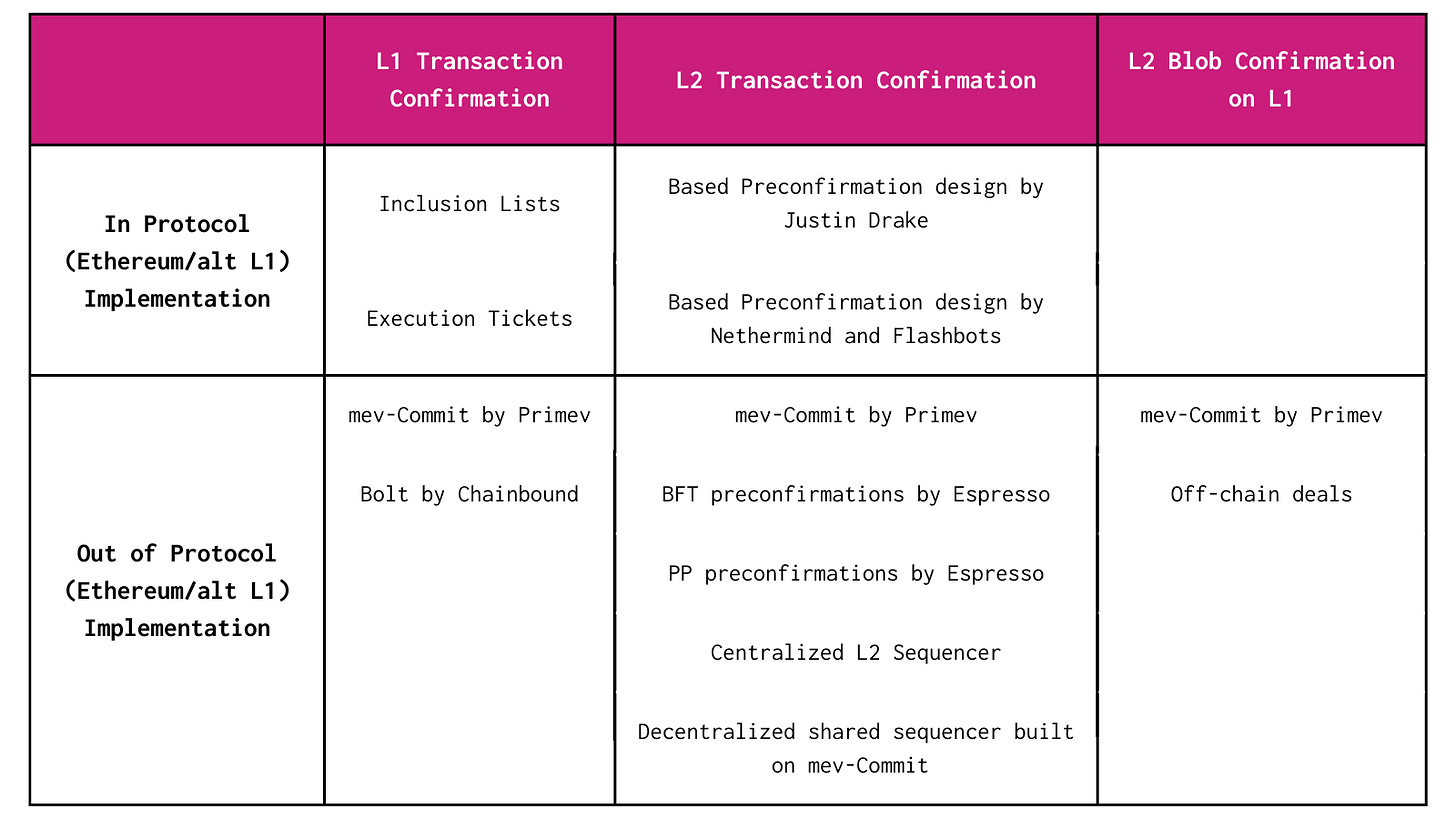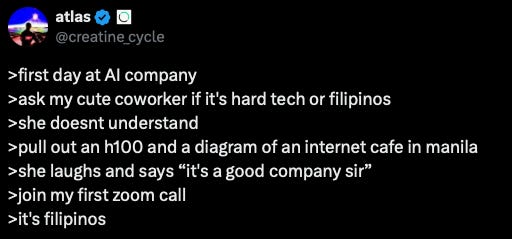Equilibrium Infra Bulletin #29: Pre-confirmations, RiscZero's zkVM 1.0, Privacy in Blockchains, and more...
Equilibrium Labs builds the state-of-the-art of decentralized infrastructure. We are a global team of ~30 people who tackle challenges around security, privacy, and scaling.
🔍 Preconfirmations: Credible Promise of Future Execution
⚡️ Topic Summary
Preconfirmations are promises (but not guarantees) of future execution made by the provider (someone who executes) against an economic incentive provided by the bidder (entity needing transaction execution). This concept exists in many web2 use cases, where you need fast confirmations (online payments, trading) but execution and completing the request might take much longer. In blockchains, the main questions are around the coordination and strength of those promises.

Preconfirmations can be provided to end users or intermediaries like searchers, solvers, bots, AA bundlers, or rollup sequencers (source) The different methods to achieve preconfirmations can be categorized based on:
Whether the implementation is out-of-protocol or in-protocol
Whether the pre-confirmation is being provided for L1 transactions, L2 transactions, or L2 blobs
Different solutions make different tradeoffs. For example, inclusion lists can improve censorship resistance but don’t address the problem of validators outsourcing block building to specialized entities to maximize their revenues (bad for end-users). It would also likely add complexity at the protocol level. On the other hand, Mev-commit by Primev is a P2P network designed to enable all MEV intermediaries to coordinate efficiently and trustlessly. This opens the design space to new use cases, such as multi-transaction flash loans or commitment games. However, mev-commit introduces its own chain and oracle solution - adding trust assumptions and risk vectors.

The diagram depicts a given mev actor’s relative placement compared to others (source)
🤔 Our Thoughts
In many ways, preconfirmations are just an extension of blockspace monetization and an attempt to bring more granular expressivity to the process. However, given the implications and potential negative externalities from naive implementations, it’s important to properly test different mechanisms before implementing them.
As Raghav points out in the article, out-of-protocol solutions can be much faster to implement, reduce the time to market, and don’t require as much social coordination from the Ethereum community. While there is a question of how much complexity we want to add to the Ethereum base layer, not enshrining a solution and letting market forces take care of it can lead to centralization vectors. We’ve seen this with mev-boost, as >90% of blocks on L1 are currently finalized through mev-boost.
More broadly speaking, Ethereum’s research-centric focus benefits the wider space as many ideas can be (and have been) extended to other ecosystems. While this post focuses on Ethereum, many of the ideas apply more broadly.
💡 Research, Articles & Other Things of Interest
📚 What Do We Actually Mean When We Talk About Privacy In Blockchain Networks (And Why Is It Hard To Achieve)? Our most recent research piece covers the "what, why, and how" of privacy in blockchains along with a framework we propose for analyzing different approaches.
📚 Can Blockchains and Zero-knowledge Help Humanity Survive? A comprehensive overview of different real-world use cases of ZK and blockchains (a total of 47).
📚 Beating Moore's Law with zkVM 1.0: RISC Zero launched their production-ready zkVM along with performance comparisons to SP1.
📚 A Zero Knowledge Paradigm: Part 2 - Exploring zk-VM Design Trade-offs: The recent article by Lita (developer of zkVM Valida) covers tradeoffs and design constraints in zkVMs.
🤌 Personal Recommendations From Our Team
📚 Reading: Chaos: Charles Manson, the CIA, and the Secret History of the Sixties - Tom O’Neill: A journalist’s 20-year obsession with the Manson murders and an investigation into all the irregularities around it. As far as true crime goes, this one is quite a page-turner.
🎧 Listening: Harpists have 7 pedals, one pedal for each note. We have a new-found respect for all the harpists out there 🫡
💡 Other: Joining an “AI” startup:







